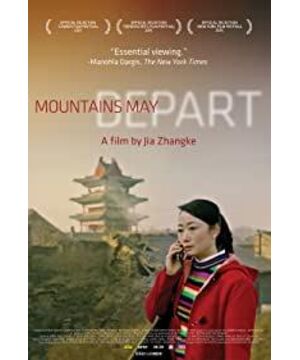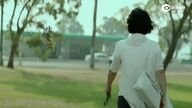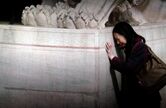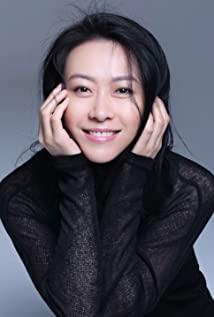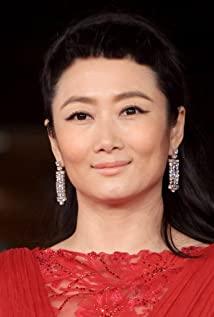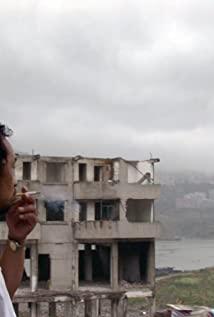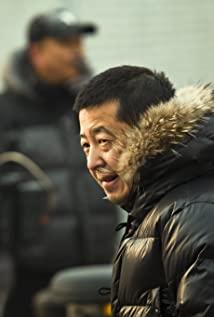The opening dance Go West, the first time I watched it, I felt abrupt. Although I have long been used to the bombing of Jia-style golden songs, the setting and atmosphere did not lead me into the late 1990s, but brought me into the misunderstanding of musical dramas... Go West for the second time, focusing on Tao's face and movements, Jin Sheng next to him , looking for the inconspicuous Liangzi in the back row, their future destiny came to my mind, and when I passed the "One Hundred Years of Solitude"-style future, I suddenly understood the style of this precious youth. It even made up for her: many years later, when Tao danced this dance in the snow, she would never have imagined that none of these people when she was young are gone.
Similarly, when adding an external soundtrack (Yoshihiro Banno) to the noise of Umbrella Yangko, I didn’t understand the overlap at first, only to realize that this soothing soundtrack has a reminiscence that dissipates instant joy.
Ma Runsheng said that the more the old people of the mountains and rivers see the back, the more they must constantly recall the previous content. As Zhang Aijia said, "life repeats itself", I think this is not only looking for care, but also looking for parts that can no longer be taken care of. Now look from the front again and think about their future destiny. Each is a footnote to another. The film is divided into three sections, each separated by ten years, and each has a relationship of "many years ago" and "many years later". After the time is stretched, only one section is taken out from the inside, and the phenomenon replaces the change. If there is no such moving vision, a lot of feelings will be lost.
Train (Tao and his father take the train together - Tao and his father take the train alone - Tao and Dale take the train together; father waits alone - Tao and Dale wait for the train together)
Key (lost by Liang Zi - Tao retrieved, Tao For the son - the son's hanging, the son's lost - Jinsheng's house)
water (Tao and Daile face the river - Daole and Zhang Aijia face the sea)
car (woman, sunglasses and co-pilot)
wedding invitation...
In fact, it is the same as "Precious".
Tao met two dragon and lion dancers on the road, and after saying hello, he drove off in an electric car. The camera hid on the side of the road still, watching Tao's retreating back. I am reminded of the images of electric cars passing through the streets in Ren Xiaoyao and The World, with the motion camera tracking the characters and observing the surrounding environment. At that time, Jia Zhangke was still presenting a specific "Chinese space", and the background became part of the subject. Now he really pays attention to the characters, hiding behind the camera and watching calmly. (Perhaps this can be used to explain the role of clear images. "Presence" is no longer enough, and "performance" has become the focus.) Ten years later, Tao stopped singing the umbrella and came out of Liangzi's house, and encountered a group of bronzes in the small alley. Wind Band Elementary School Students.
In the soundtrack suggesting "Leaving", Tao, Jinsheng, and Liang Zi set off glacial fireworks. The explosion was accompanied by the shattered ice cubes drifting and moving when the ice and snow on the river melted. That's when I realized for the first time that Mountain Will Depart The existence of the depart image. The relationship between the characters also shattered, and the ice surged. When the soundtrack reappeared, the explosion on the glacier was replaced by ammunition, Jinsheng's anger and the absent Liangzi, there was no scene on the same stage. The opening dance goes into "history".
Every emotional rupture is presented by an "explosion". Tao encounters a plane crash on the way back, inserting the classic "broadcast narrative" segment. In fact, before this explosion, there was another small explosion, which happened under Wenfeng Pagoda, and several young people fired guns. About the breakup scene, others have also talked about it. It also starts from Tao standing on the ancient city wall. After reading it twice, I still feel that the narrative is not as good as "Platform". Cui Mingliang and Yin Ruijuan bowed their heads and said nothing, watching the camera from a distance. The bright circle shone on the city wall, and also on Cui Mingliang. Two people seem to be classified into different stages of life, and separation is inevitable. The difference between Liang Zi and Tao, sending wedding invitations, throwing keys, shedding tears, whether it is an image or a plot, the tracing of the characters is too tight and solid, and it is filled with the emotional space that may be expanded.
I'm a little disappointed in this overly narrated plot progression. For example, Tao's delivery scene is superfluous. Liang Zi's lover asked Tao to borrow money. After saying "he is not good", a long crying scene was added, which was superfluous. Compared with the simple and poetic treatment in the past, I would think that Jia Zhangke was not attentive enough. Of course, the frame, the director and the title after the first paragraph are over is still a concern. The highlight is not just the night out, but also the opportunity it connects to the birth of a baby.
Also a little disappointing is that the external soundtrack is too abundant. Beginning with Umbrella Head Yangko, this soundtrack, which hints at the theme of "leaving", has been used too frequently since then, triggering the possibility of sensationalism at any time. Glacier fireworks, explosives, Liangzi leaving home, inserting old images, going to the riverside of mother and son in the second section, the train moving, and even switching to the third section of the father and son quarrel, recalling mother, all used this soothing micro Sad soundtrack. From the second paragraph, there is another soundtrack that may hint at the theme of "going home". Liang Zi saw a tiger on the side of the road and saw someone burning a forest fire. When Tao's father died, it was even more sad and desolate.
The director may be afraid that the audience will not experience the grief of emotional collapse in this long river of time, reminding us at any time that "there is sadness here". It is also Yoshihiro Hanno. In contrast, the use of the soundtrack of "Platform" is quite restrained, as if there is none. When Cui Mingliang started a bonfire at night, the similar music was only given for a few seconds. Jia Zhangke's films have always been rich in sound, popular songs, radio and TV, so the external soundtrack will be less. This time, I added the soundtrack repeatedly to the "Precious" and "Go West", which are so rich in color, and it was really overwhelming.
After Liang Zi left home, he entered the retrospective exhibition of "Jia Zhangke, who I miss the most". Those leftovers, blurred images, the appearance of the crowd, the burning forest fires, and the coal-loading trucks were taken during the filming of Xiaowu and the platform. Coal was scattered all over the ground, and people slowly gathered around to help sweep the floor. Those crude, hand-held home video images remind me of the familiar early Jia Zhangke. Including an old man riding a bicycle at the funeral after that, the boy with a knife who hinted at time, and the miner's bathhouse, all maintain the daily myths in the image. The culmination of course was Lao Tao's dance in the snow, which enveloped the entire mountains and rivers and brought me back to Yin Ruijuan's office to dance in a certain winter.
My favorite Han Sanming is a copycat in Shanhe Guren. Jia Zhangke's film is like Han Sanming's appearance this time. His face is clear and his speech is neat, but his true anger is not enough. How can we say a director we like, but what we like is always his work that has not been recognized as a director. Sanming's syllogism seems to be Jia Zhangke's syllogism. As one of the faces of classic group portraits, Sanming watched the performance in "The Good Man of Three Gorges". Sanming, who bid farewell to Liang Zi at the mine, turned his shirt on. With the pen in his pocket, ten years later, Sanming is no longer a miner, but a welder of oil pipelines. He will also live elsewhere and become one of the exiles. So in 2025, what is the old Sanming doing? Is he a numb face, or a face manipulated by stories?
View more about Mountains May Depart reviews


